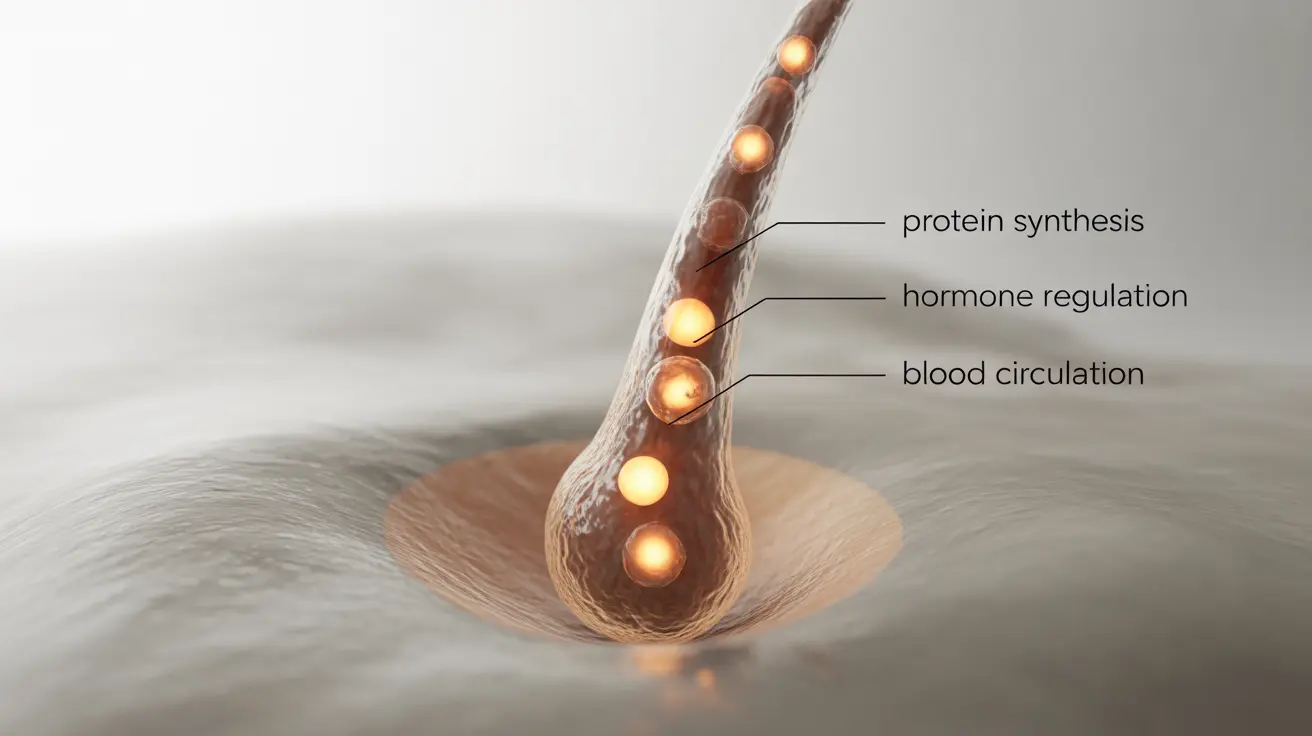Hair loss can be a distressing condition that affects both men and women, leading many to explore various treatments and supplements. Among these, magnesium L-threonate has gained attention as a potential solution for maintaining healthy hair growth. This article examines the relationship between magnesium L-threonate and hair loss, exploring its effectiveness, safety, and proper usage.
Understanding Magnesium L-Threonate and Hair Health
Magnesium L-threonate is a unique form of magnesium that can effectively cross the blood-brain barrier and may offer specific benefits for neural health. While it's primarily known for its cognitive benefits, some research suggests it might play a role in hair health through various mechanisms.
The Connection Between Magnesium and Hair Loss
Magnesium is an essential mineral that plays several crucial roles in hair health:
- Protein synthesis for hair follicle development
- Cellular energy production
- Hormone regulation affecting hair growth
- Blood circulation to the scalp
When magnesium levels are insufficient, these processes can be compromised, potentially contributing to hair loss or thinning.
How Magnesium L-Threonate May Support Hair Growth
While research specifically on magnesium L-threonate for hair loss is limited, this form of magnesium may offer several potential benefits:
Direct Hair Benefits
- Supports protein synthesis necessary for hair structure
- May help reduce inflammation that can affect hair follicles
- Could improve blood circulation to the scalp
Indirect Benefits
- Helps manage stress levels, which can impact hair loss
- Supports better sleep quality, important for hair growth
- May help regulate hormones that affect hair health
Proper Usage and Dosage Guidelines
When considering magnesium L-threonate for hair health, it's important to follow appropriate dosing guidelines:
- Typical daily dosage ranges from 1,000-2,000mg of magnesium L-threonate
- Start with a lower dose and gradually increase
- Best absorbed when taken with food
- Consider splitting doses throughout the day
Potential Side Effects and Precautions
While generally considered safe, users should be aware of possible side effects:
- Digestive issues
- Headaches
- Drowsiness
- Changes in blood pressure
Always consult with a healthcare provider before starting any new supplement regimen, especially if you have underlying health conditions or take medications.
Alternative and Complementary Treatments
For comprehensive hair loss treatment, consider combining magnesium L-threonate with proven hair loss interventions:
- Minoxidil
- Finasteride (prescription only)
- Scalp care practices
- Balanced nutrition
- Stress management techniques
Frequently Asked Questions
Can magnesium L-threonate help prevent or treat hair loss? While magnesium L-threonate may support overall hair health through various mechanisms, there isn't enough direct scientific evidence to confirm it as a primary treatment for hair loss. It's best used as part of a comprehensive hair care approach.
How does magnesium deficiency contribute to hair loss and thinning? Magnesium deficiency can affect hair growth by disrupting protein synthesis, reducing cellular energy production, and impacting hormone balance. These factors can lead to weakened hair follicles and increased hair loss.
What is the recommended dosage of magnesium L-threonate for improving hair health? The typical recommended dosage is 1,000-2,000mg of magnesium L-threonate daily, but it's important to start with a lower dose and consult with a healthcare provider for personalized recommendations.
Are there any side effects or risks of taking magnesium L-threonate supplements for hair loss? Common side effects may include digestive issues, headaches, and drowsiness. While generally safe, some people may experience changes in blood pressure or interactions with medications.
How does magnesium support hair growth and what other treatments work better for hair loss? Magnesium supports hair growth through protein synthesis, cellular energy production, and hormone regulation. However, FDA-approved treatments like minoxidil and finasteride have stronger evidence for treating hair loss directly.




